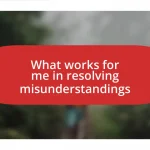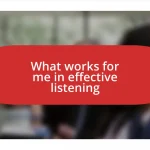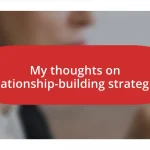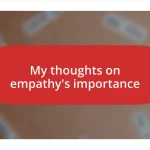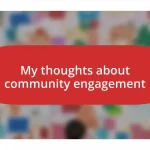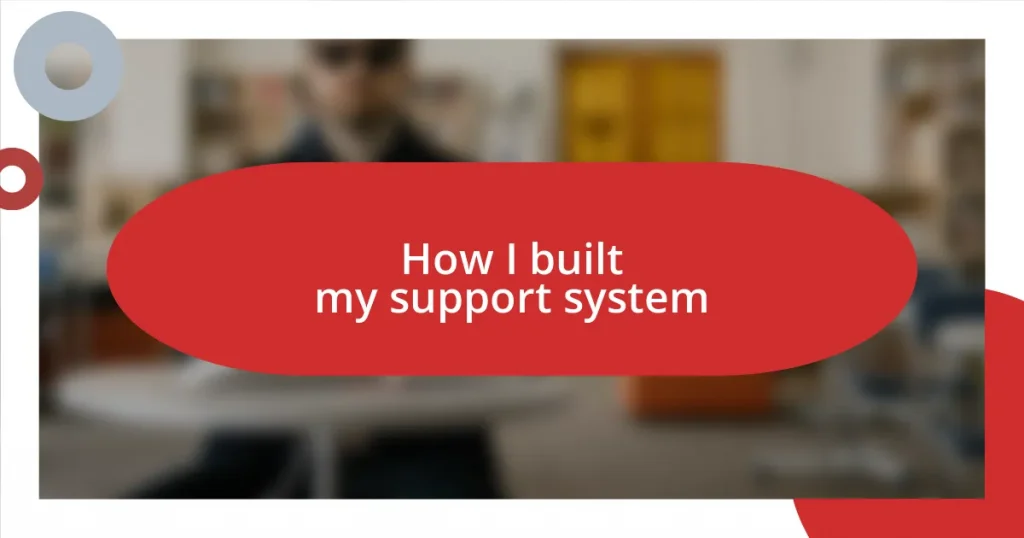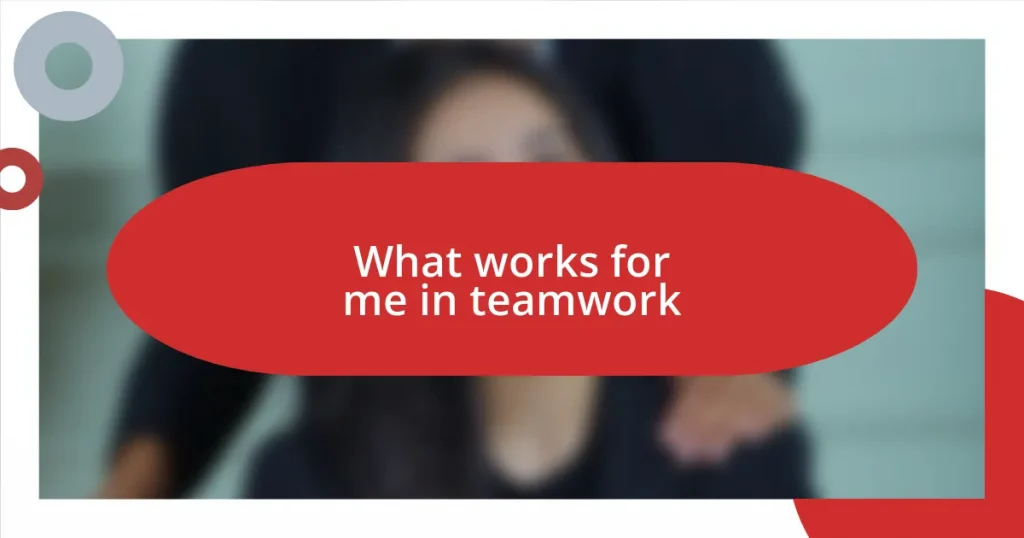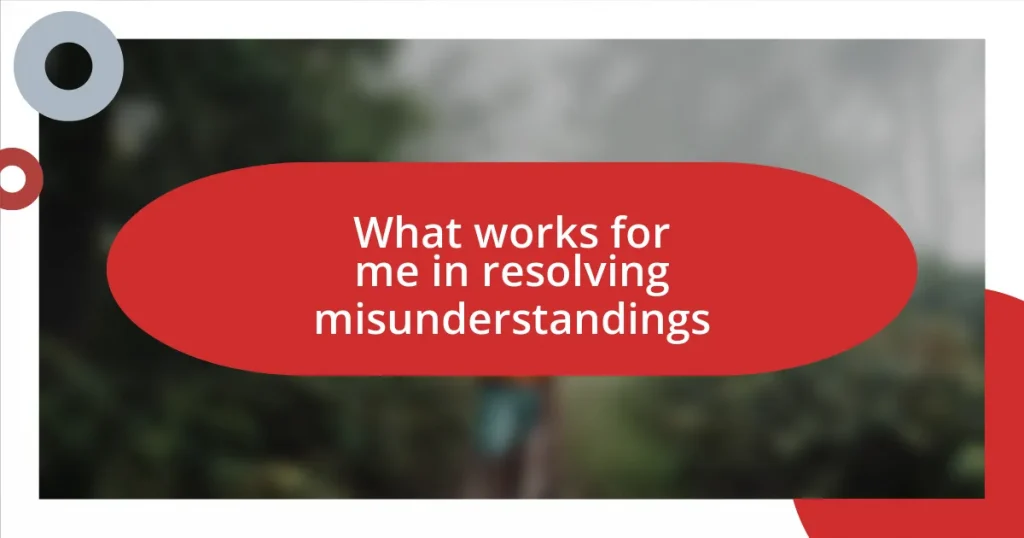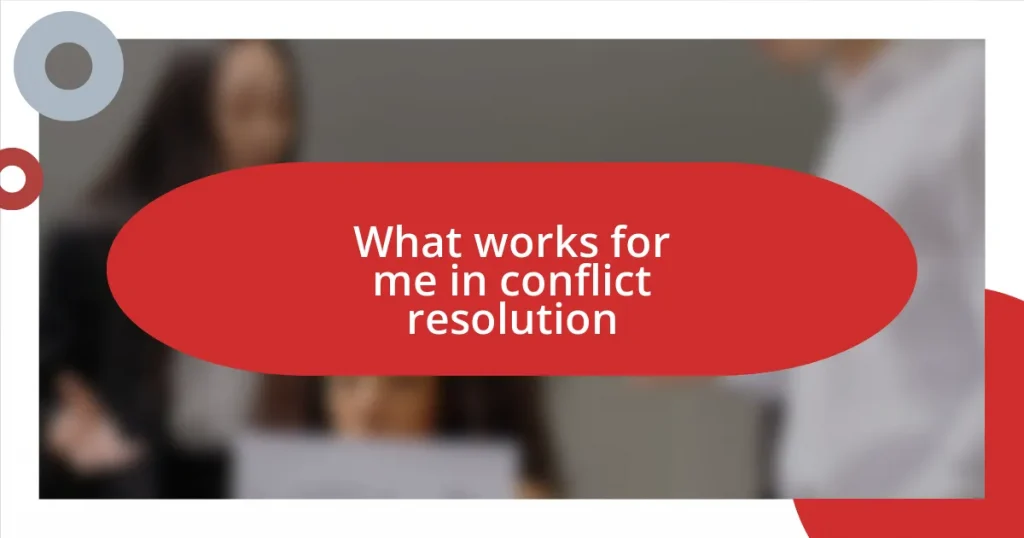Key takeaways:
- Support systems provide emotional and practical assistance, fostering resilience during tough times.
- Identifying personal needs and goals through self-reflection enhances communication within your support network.
- Building strong relationships involves intentionality, shared values, and consistent engagement with dependable friends and family.
- Mentorship can arise organically through casual interactions, providing invaluable emotional support and guidance.
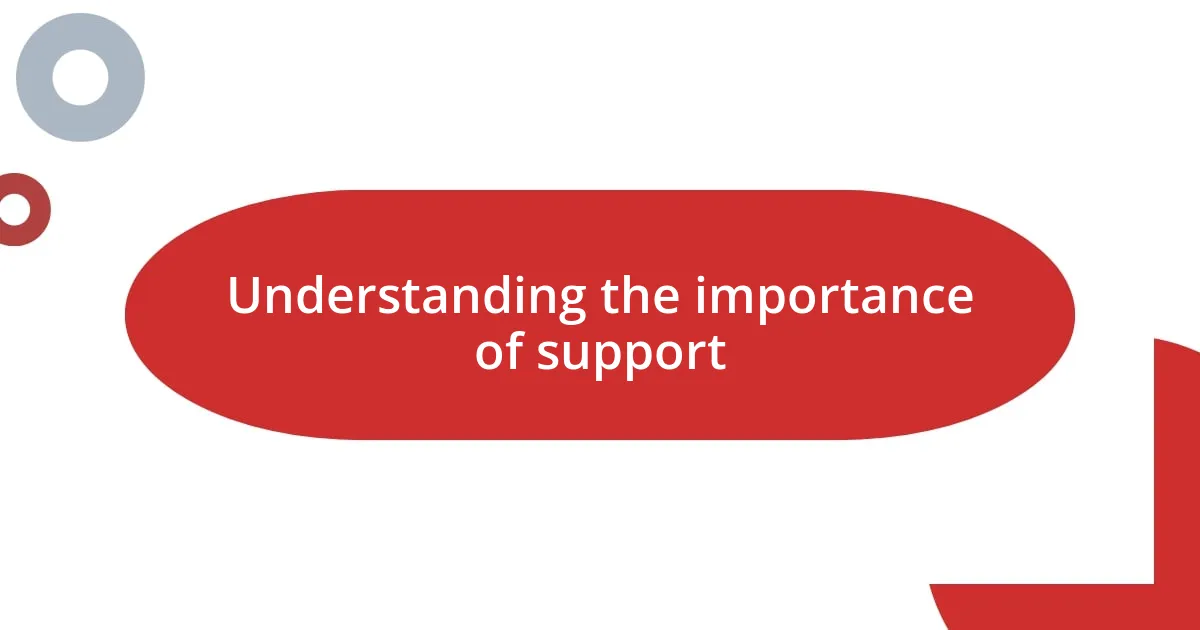
Understanding the importance of support
Support systems are like safety nets; they catch us when we stumble and encourage us to rise again. I remember a time when I faced a particularly tough situation at work. Instead of feeling isolated, I reached out to my friends and family, and their perspectives helped me see a way forward that I hadn’t considered before. Isn’t it amazing how a few words from someone who cares can shift our entire mindset?
Emotional support plays a vital role in our well-being, enabling us to navigate life’s ups and downs more gracefully. There was a period when I felt overwhelmed by life changes, and my friends became my sounding board. They didn’t always have solutions, but just knowing I wasn’t alone gave me the strength to keep pushing forward. How often do we underestimate the power of simply being there for each other?
Having a support system isn’t just about tangible help, it’s about the emotional connection we share with those around us. I often think about how my own family rallies behind me during tough times. Their unwavering belief in me ignites a fire within, pushing me to strive for my goals. Could there be anything more empowering than knowing there are people in your corner, ready to lift you up when you need it most?
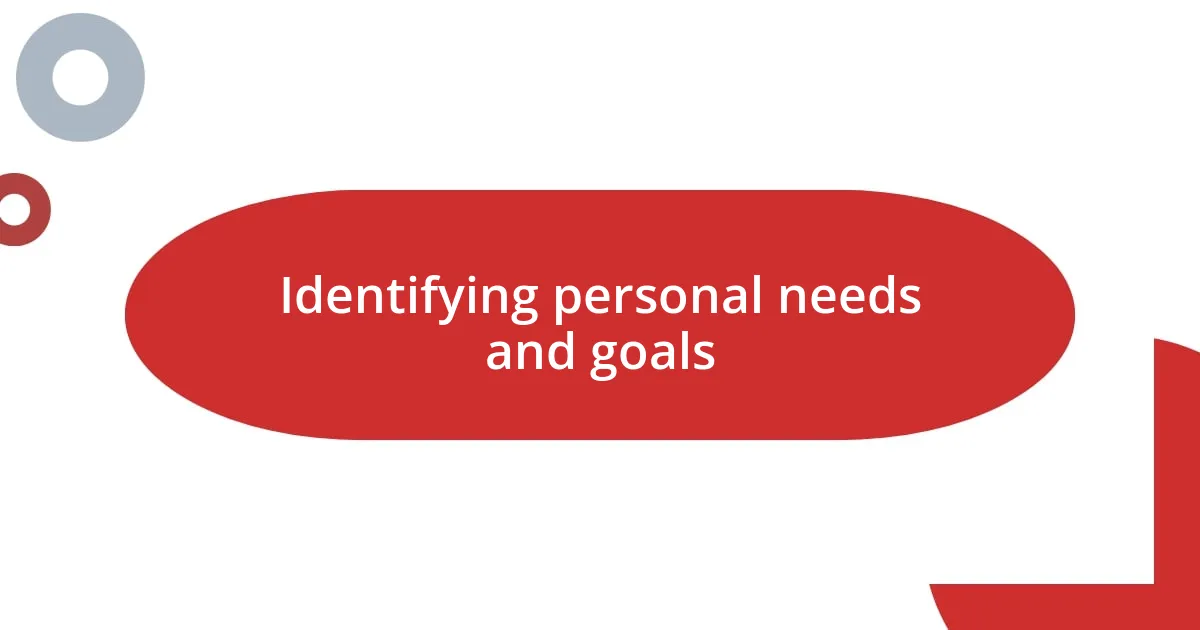
Identifying personal needs and goals
Identifying what you truly need from a support system requires a deep dive into your own feelings and aspirations. I’ve learned that taking the time to reflect on my personal goals can illuminate what kind of support I actually need. For example, when I decided to switch careers, I realized I needed encouragement and practical advice. It was a game-changer to acknowledge these needs upfront; I could then reach out to the right people who could help me navigate that transition.
Here’s a quick guide to help you identify your personal needs and goals:
- Self-Reflection: Take time to think about what you want to achieve. Write down your thoughts or meditate on them.
- Identify Emotions: Consider the feelings you experience in various situations. What brings you joy? What do you find challenging?
- Set Specific Goals: Make your goals actionable and achievable, whether that’s personal growth, academic success, or career advancement.
- Prioritize Needs: Not all needs are equal; some may require immediate attention while others can be developed over time.
- Reach Out for Feedback: Talk to trusted friends or mentors about your goals. Their perspectives can offer valuable insights.
By following these steps, I found clarity in not just what I wanted, but also in how to articulate my needs to my support system. This process transformed my relationships, allowing them to become sources of empowerment rather than mere connections.
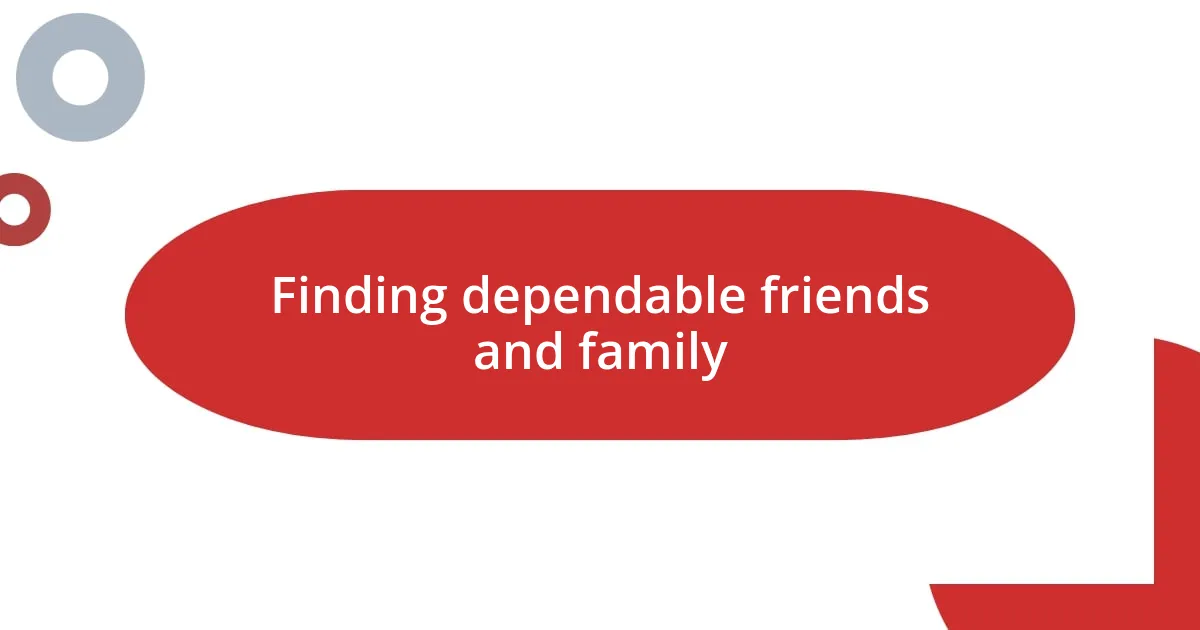
Finding dependable friends and family
Finding dependable friends and family starts with being intentional about who we surround ourselves with. I’ve learned that dependable people often share similar values and interests with me. For example, a friend of mine shares my passion for fitness, and through our shared commitment, we not only motivate each other to achieve our goals but also bond on a deeper level, which is incredibly rewarding. How often do we explore these commonalities in our relationships?
Trust plays a crucial role in building these connections. In my experience, sharing personal challenges with someone creates a unique bond. I remember confiding in a close family member about my struggles with anxiety. Their understanding and encouragement not only made me feel valued but also reinforced my trust in them. It’s a reminder that vulnerability can pave the way for strong, dependable relationships.
Lastly, investing time in these relationships is essential. I prioritize regular catch-ups, whether it’s over coffee or a quick phone call. This consistent effort has allowed my friendships to flourish, as we provide each other with ongoing support and encouragement. I wonder, how many meaningful connections can we cultivate simply by being present and intentional?
| Dependable Friends | Dependable Family |
|---|---|
| Shared Interests | Unconditional Support |
| Moral Support in Challenges | Open Communication |
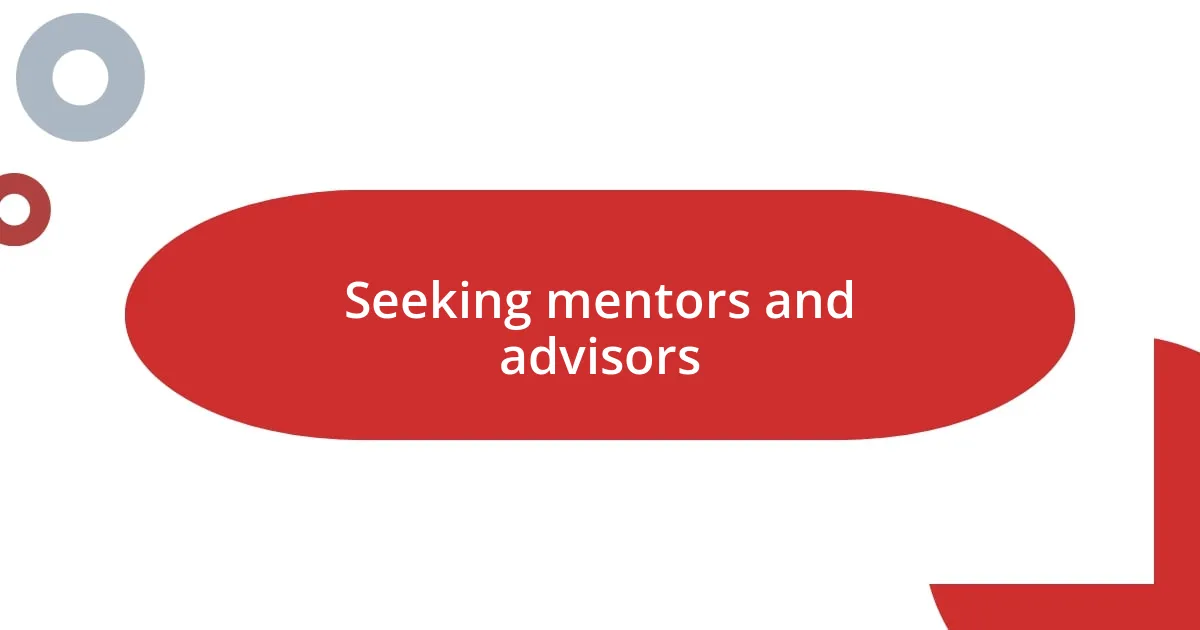
Seeking mentors and advisors
Finding the right mentors and advisors can significantly shape your journey. I recall my first encounter with a mentor who had navigated the same career path I was exploring. When I reached out, I was nervous, but her warmth and genuine willingness to share her knowledge from her own trials made all the difference. It made me realize how impactful a single conversation could be—have you ever experienced that moment when someone’s encouraging words resonate deeply with you?
I’ve also discovered that seeking mentors doesn’t always have to be formal. Sometimes, it can happen organically through casual interactions. For instance, during a community event, I met a local entrepreneur whose insights into business strategy were invaluable. The conversation flowed effortlessly, and I walked away with practical advice that I still implement today. It reminded me that mentorship can arise in unexpected places; have you tapped into your local community for guidance?
When I think about the role of advisors, I feel a sense of gratitude. They offer not just strategies, but also emotional support. I remember reaching out to an advisor during a challenging project, feeling overwhelmed and unsure. Their reassurance and perspective helped me reframe my approach, empowering me to move forward with renewed confidence. This experience reinforced for me that seeking mentorship isn’t just about advice; it’s about building a network of support that uplifts us during both high and low moments. So, who in your life could serve as a guiding light on your journey?
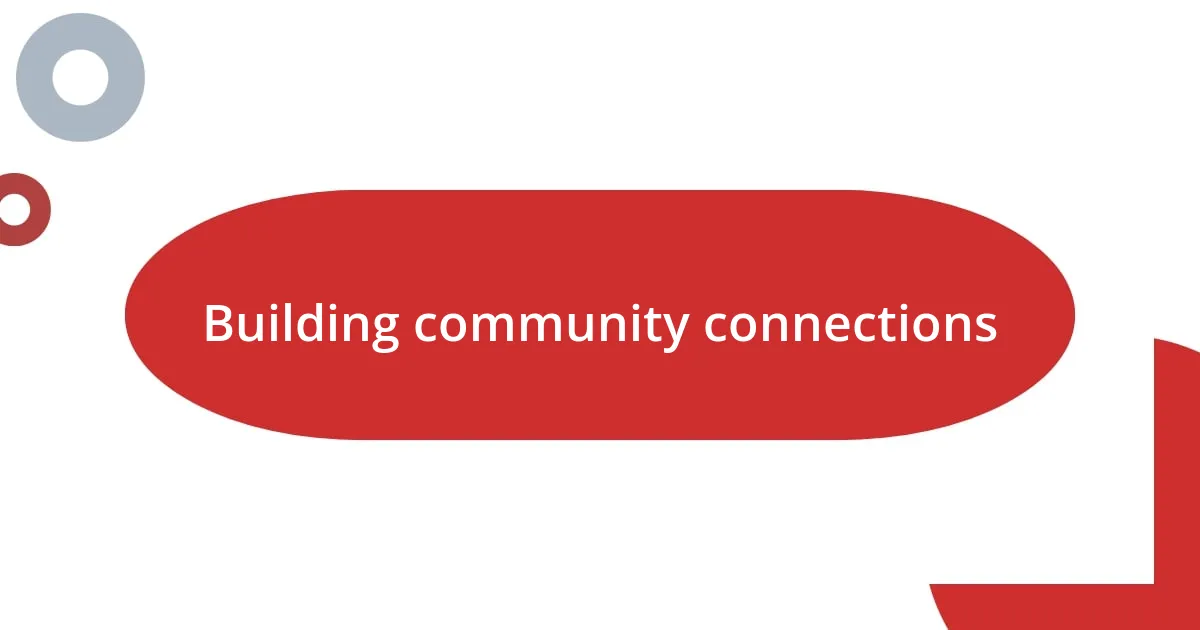
Building community connections
Building community connections often requires a proactive approach. I remember joining a local book club where the shared love for reading sparked exciting conversations. One evening, while discussing our favorite novels, I felt an instant connection with several members, leading to deeper friendships outside of the club. Have you ever discovered a hidden gem in your community that opened the door to new relationships?
Engaging in community events can also be transformative. I once volunteered at a weekend fair, and the energy was contagious. Working alongside others who shared the same passion for giving back helped me forge connections that felt authentic and meaningful. That’s when I realized that teamwork can create lasting bonds—who knew sharing tasks could lead to forging friendships?
Moreover, being vulnerable in community settings can invite genuine connections. I vividly recall a moment during a workshop when someone shared their personal struggles. Their honesty encouraged me to open up about my own experiences, creating an atmosphere of trust and understanding. It felt empowering to see how our stories intertwined, reinforcing that common experiences truly connect us. What might you find when you dare to be open within your community?
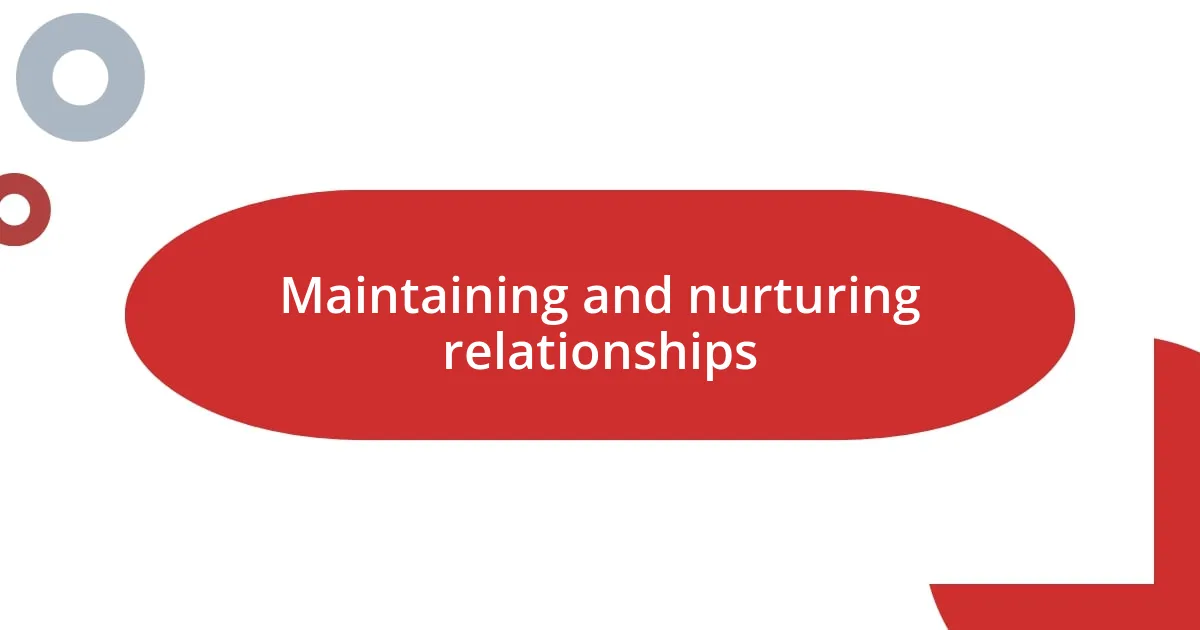
Maintaining and nurturing relationships
Maintaining and nurturing relationships is an ongoing process that requires intention. I always make it a point to check in with friends and mentors, not just when I need something. For example, a quick message to see how someone’s project is progressing or just to ask about their weekend can strengthen our bond. Have you ever noticed how small gestures can have a ripple effect on your connections?
I remember a time when I organized a small gathering with a few acquaintances I wanted to know better. Sharing laughter over dinner, and reminiscing about our favorite childhood memories allowed us to cultivate a deeper understanding of one another. It was fascinating to unravel our distinct backgrounds and share life stories; it created a rich tapestry of shared experiences that made us feel more connected. How do you create opportunities for genuine connection with those around you?
Regularly expressing gratitude is another effective way to nurture relationships. I make it a habit to send thank-you notes or heartfelt texts to those who impact my life. I recall writing a note to a colleague who went out of their way to help me on a project, and the smile it brought to their face was priceless. This simple act of appreciation not only enriches their day but reinforces the relationship in a meaningful way. Can you think of someone you haven’t thanked lately?

